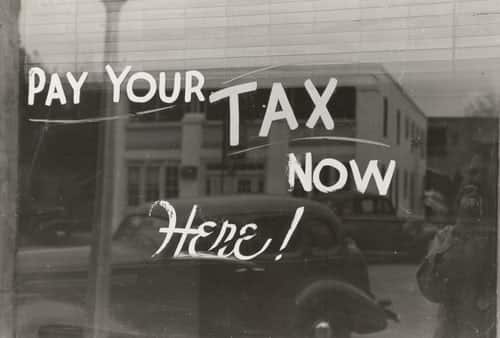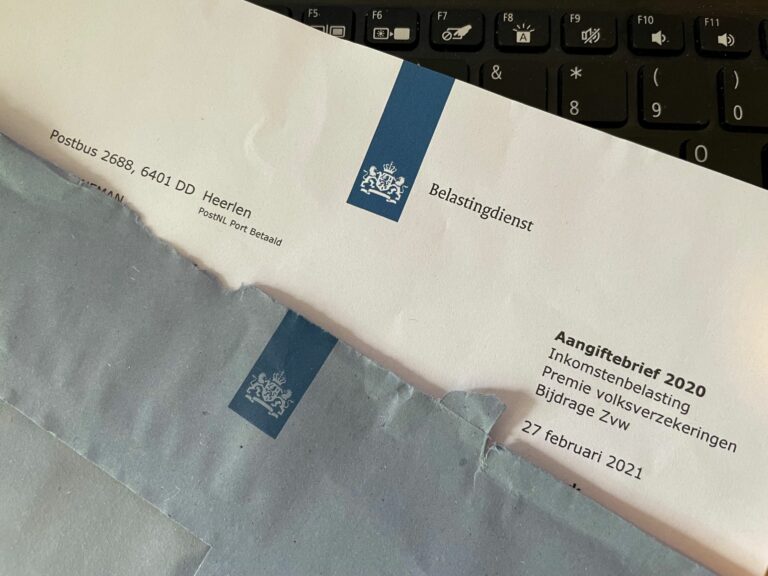BSN: Citizen Service Number – your Dutch tax identification number

BSN: Citizen Service Number – your Dutch tax identification number
What is a BSN?
The citizen service number – in Dutch written as Burgerservicenummer or BSN – is a unique personal ID number of every citizen who is registered in the population register (Municipal Personal Records Database) at the municipal authorities. The citizen service number is the successor to the ‘SoFi’ number. The citizen service number will be used by all government organisations. The citizen service number makes it easier and more reliable to handle personal data by the government.
When am I entitled to a BSN?
When you are registered in the population register (Municipal Personal Records Database) with the municipal authorities, you will automatically obtain a citizens service number.
How do I obtain a BSN?
On November 26, 2007 the sofi number of everyone who was registered in the population register (Personal Records Database) at the municipal authorities has been automatically converted into a citizen service number. From that date, everyone registering with the municipal authorities will be given a citizens service number. You will notice this, for example, if you register your new-born child with the municipality. People who have a sofi number, but are not registered with the municipal authorities, will keep their sofi number.
BSN after registration as a non-resident
Are you coming to the Netherlands to work or study for less than 4 months or do you remain living outside the Netherlands while you work here? You can then register as a non-resident in the BRP (also known as RNI, the registration of non-residents). After registering with the RNI you will receive an extract with your citizen service number (BSN). In most cases you will need the citizen service number for your contact with the Dutch government. For example for healthcare or taxes.
BSN for AOW benefit abroad
Do you want to apply for an AOW benefit from abroad and do you not yet have a citizen service number? Then the Sociale Verzekeringsbank (SVB) will ensure that you are registered as a non-resident in the BRP and receive a citizen service number. For this you can contact the SVB from abroad. You do not have to travel to the Netherlands for this.
Request a BSN for a foreign partner
Do you live abroad and want to apply for or change an allownace? But your allowance partner does not have a citizen service number? Then complete the Request citizen service number form for allowance partner (abroad). With this form you can’t request a citizen service number for your children. You will receive this if you apply for child benefit at the SVB.
Lost your BSN?
You can find your citizen service number on the following documents, among others:
- your Dutch passport
- your Dutch driver’s license
- your Dutch identity card
- the declaration letter that you receive from the tax authorities
- a tax assessment (for example, income tax) that you receive from the tax authorities
- Is your citizen service number not on your proof of identity? You can also find your citizen service number in Mijn Overheid. You must first log in with your DigiD.
Or request your citizen service number from the municipality where you are registered. You must show a valid proof of identity before your municipality provides your citizen service number.
Examples of questions answered in our Knowledge Base:
- I need a registration number for tax and social security. Is that the BSN?
- I have left the Netherlands 3 years ago and will come back. Is my sofinumber still valid?
- My partner is not living in the Netherlands but needs a sofinumber. How can we get it?
- BSN while living outside the Netherlands. How can I get one to receive pension from the Netherlands?
- Why was a new number system introduced?
Which organizations use the BSN?
The citizen service number legislation covers that all governmental bodies can use the citizen service number when executing their task. Certain arrangements can be made by the legislation of the citizen service number so non-governmental bodies can use the citizen service number. This means that, for example, employers will have to use the citizen service number for the purpose of supplying income data to the tax authorities. General practitioners or family doctors and other medical organizations will use the citizen service number when the legislation on the citizen service number in the medical field has been implemented.
The general rule is: when an organisation does not have the need to store your personal data, including the citizen service number, in order to fulfil a duty, the organisation is not allowed to use or store your citizen service number.
Can any company use my BSN?
That depends. If you work for the supermarket, as your employer the supermarket is required to exchange information on your earnings with the tax authorities using your citizen service number. The supermarket is not permitted to use it for any other purpose unless there is a specific legal basis. Under the current proposal the supermarket would not be permitted to do so even with your permission.
Validity of a BSN
The validity of the citizen service number is unlimited. Even if you move abroad, your citizen service number will remain valid. A citizen service number is uniquely linked to a person. If someone has died, the citizen service number remains linked to this person and is not reissued.
Will all my data be collected in one place?
No. It will remain the case, for example, that the tax authorities will manage the data on you that it needs to issue tax assessments. The UWV will manage the data needed to administer the unemployment insurance scheme. The municipal social security department will manage the data needed to administer the social security benefit system.
The aim, however, is to concentrate the recording of certain key data and make it available to all government bodies. This is already the case with the key data in the population register, which municipalities collect for all the government agencies that need it. There will also be other ‘key registers’, e.g. one containing data on taxable income, which will provide other government bodies needing that data in order to do their work with a reliable source. There will be separate legislative processes for the various key registers. The citizen service number system will facilitate an effective and errorless exchange of information with these.
Will every government department know everything about me?
No. What data a government body is permitted to process is laid down not in the citizen service number legislation but the Personal Data Protection Act and sector-specific legislation. In a nutshell, as a rule a government body is only permitted to ‘know’ the data it needs to do its work. If you apply for a building permit, the municipal authority does not need to know whether you have any outstanding speeding fines, so it is not permitted to obtain that information.
If someone knows my BSN, does that give him access to all my data, for example my medical records?
No. A citizen service number does not in itself confer any rights, either to the holder of that citizen service number or to someone producing it. In other words, the citizen service number is not a key that provides the right of access to a database.
In practice, access to the data would involve circumventing the database protection system. The Personal Data Protection Act lays down that personal data must be properly secured against unauthorized access. What this proper protection involves depends on the circumstances. Some data collections are public (e.g. the public registers of the land registry); others are subject to very strict access rules (police files, medical records). The Act lays down that the security arrangements must be in line with the risks and the state of the art. Anyone who is responsible for a collection of personal data must install a security system that only permits access to authorized persons.
A government body that is authorized to access certain data in a collection it will use the citizen service number as an aid, thus improving efficiency and reliability.
Will the use of a BSN increase the risk of identity fraud?
The citizen service number will make identity fraud more difficult. Identity fraud is where someone pretends to be another person, e.g. by using someone else’s citizen service number, usually with gain as the motive. The citizen service number system has safeguards against this kind of abuse. The number issuing system is improved, preventing the issue of more than one number to the same person. Citizen service number users will have to match the person to the citizen service number before processing data. The citizen service number system provides facilities to assist users with matching (the citizen service number management facility).
Who can I turn to if there is something wrong with my BSN?
In a word, (1) the government agency where the error has occurred; (2) if there is something wrong with your key data, including your citizen service number, your municipal authority.
In most cases what you will run up against will not be a ‘mistake in the citizen service number’ but having to pay more tax than you expected or not being granted a licence, permit or allowance. There are various steps you can take against the government body that has issued the assessment or refused to grant your application. You can appeal against the assessment or refusal, ask the body to correct the data it is using, or complain to the body about the treatment you have received.
If the dispute is related to key data in the population register which you believe to be incorrect, e.g. an incorrect citizen service number, you can ask your municipal authority to correct it. Decisions will have to be made based on the correct data. If your appeal or request for correction does not produce the desired results, you can lodge a complaint with the courts. In most cases you can appeal against the court’s decision in a higher court.
In case the mistake or complaint is not addressed in time or incorrectly by the organisation (appealing body), you can contact the citizen service number point.
Disputes about treatment can be placed to the National Ombudsman. In the event of a dispute about the processing of your personal data you can ask the Dutch Data Protection Authority (Cbp, College bescherming persoonsgegevens) to advise or mediate.
To sum up, the options open to you are:
- appealing to the body concerned
- requesting a correction
- complaining about your treatment
- lodging a complaint with the courts
- appealing against the court decision
- Citizens Service Number point
- lodging a complaint with the national or local ombudsman
- asking the Cbp to advise or mediate.





